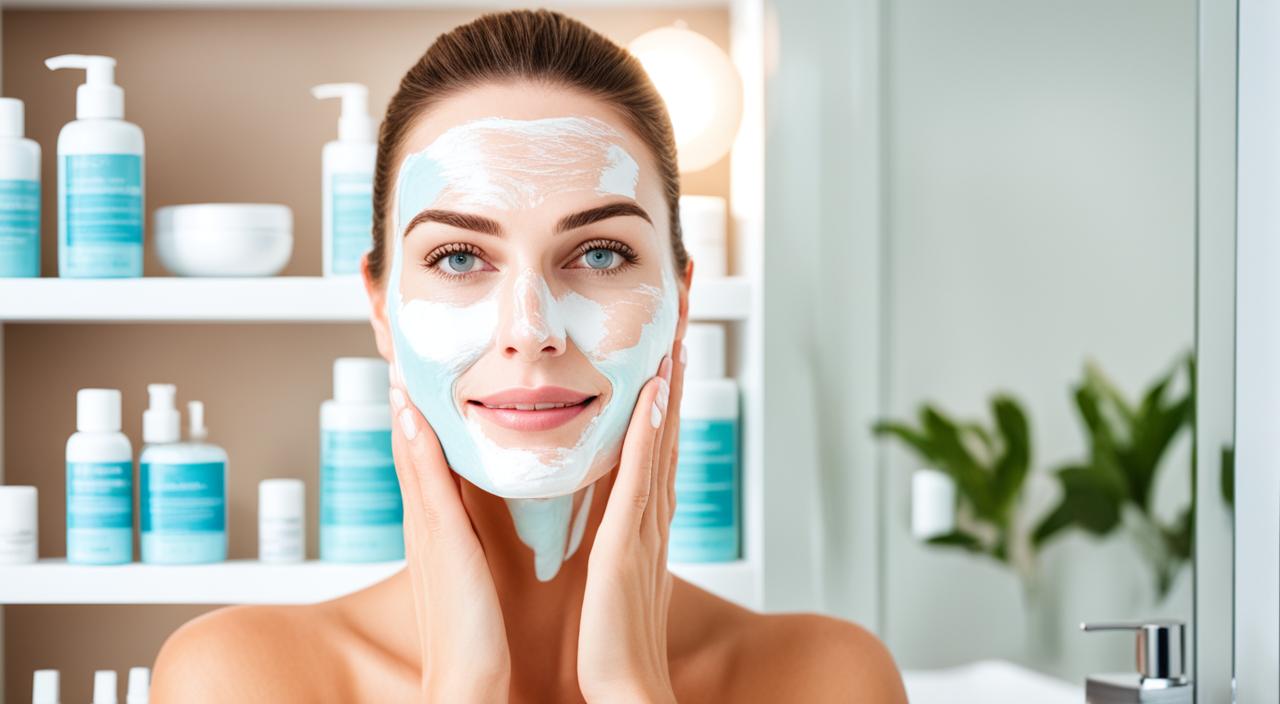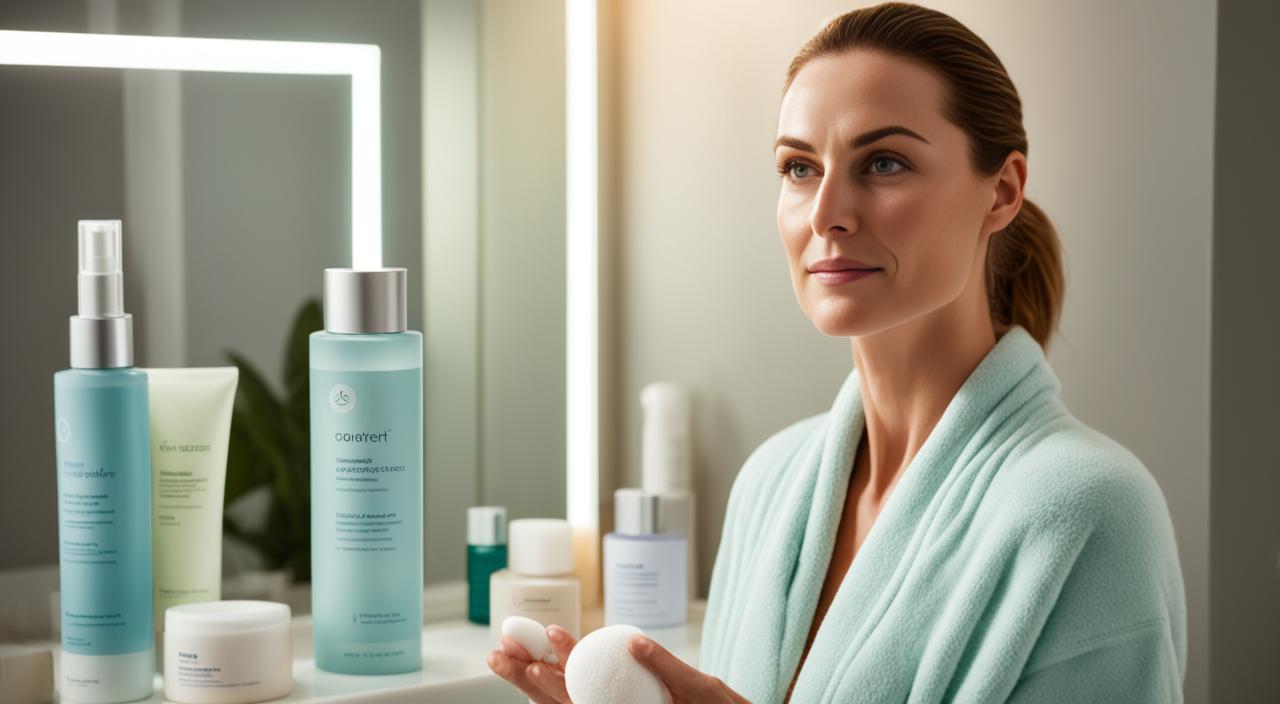How Often To Wash Your Hair?
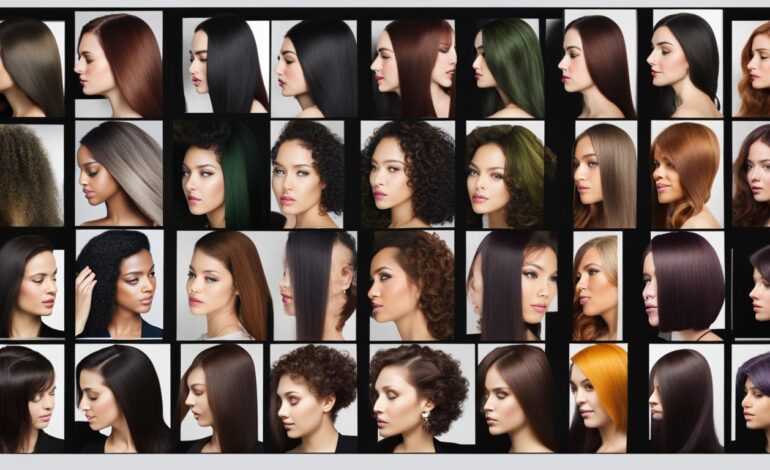
How Often To Wash Your Hair : Wondering how often you should wash your hair? There isn’t a one-size-fits-all answer to this question. The ideal hair washing frequency depends on various factors, including your hair type, scalp oiliness, and personal preferences. In this article, we’ll explore the factors that influence how often you should wash your hair and provide some helpful tips for maintaining a healthy hair cleansing routine.
Key Takeaways:
- The frequency at which you should wash your hair varies from person to person.
- Factors such as hair type, scalp oiliness, and activity levels play a role in determining the ideal hair washing frequency.
- Thick and curly hair generally doesn’t need to be washed as frequently as other hair types.
- Oily hair may require more frequent washing to prevent greasiness.
- Dermatologists recommend washing your hair once or twice per week for most people.
Factors that Influence Hair Washing Frequency
The optimal hair washing schedule is influenced by various factors, including hair type, scalp oiliness, and personal preferences. It’s important to find a hair hygiene routine that works best for you and maintains the cleanliness and health of your hair.
Recommended Hair Wash Frequency
The recommended hair wash frequency can vary depending on individual factors. However, most hair care experts suggest washing your hair every 2-3 days for optimal cleanliness. This frequency allows for the removal of dirt, excess oil, and product buildup without stripping away natural oils essential for hair health.
Best Practice for Hair Washing
When it comes to washing your hair, there are a few best practices to follow:
- Use lukewarm water instead of hot water to avoid drying out your hair and scalp.
- Apply shampoo to your scalp and roots, massaging gently to remove dirt and excess oil.
- Rinse thoroughly to ensure no residue is left behind.
- Apply conditioner to the lengths and ends of your hair, avoiding the scalp.
- Leave the conditioner on for a few minutes before rinsing it out.
- Pat your hair dry with a soft towel instead of rubbing vigorously to prevent damage.
Optimal Hair Washing Schedule
While the recommended hair wash frequency is every 2-3 days, the optimal schedule can vary based on individual factors. Here is a general guideline based on hair type:
| Hair Type | Optimal Washing Frequency |
|---|---|
| Straight to Wavy Hair | Every 2-3 days |
| Curly Hair | Every 3-4 days |
| Thick or Coarse Hair | Every 4-5 days |
| Fine or Thin Hair | Every other day or daily, if desired |
Remember, these are general recommendations, and you may need to adjust your hair washing frequency based on your personal needs and preferences.
Ultimately, listening to your hair and scalp is key to finding the optimal hair washing schedule. Pay attention to how your hair feels and looks and adjust your hair hygiene routine accordingly. Consulting with a dermatologist or hairstylist can also provide personalized guidance based on your specific hair and scalp condition.
Hair Washing Frequency Based on Hair Type
Different hair types have different needs when it comes to washing. Understanding your hair type is key to determining the ideal hair washing frequency. Let’s take a look at how often you should wash your hair based on your particular hair type.
Curly Hair
For those with curly hair, washing too often can strip away natural oils and lead to dryness. Experts generally recommend washing curly hair every 2-3 days to maintain moisture and prevent frizz. However, this may vary depending on the individual’s hair texture and personal preferences.
Thin or Fine Hair
Thin or fine hair tends to get greasy more quickly due to the scalp’s natural oils. Individuals with this hair type may need to wash their hair more frequently, possibly every other day. Regular washing can help remove excess oils and add volume. However, be careful not to overwash, as it can lead to dryness and damage.
Dry Hair
Dry hair requires less frequent washing to prevent further drying. Washing dry hair every 3-4 days or even once a week can help retain natural oils and moisture. This allows the hair to benefit from its own natural conditioning, making it less prone to breakage and frizz.
Oily or Greasy Hair
Those with oily or greasy hair may need to wash their hair more often to control excessive oil production and maintain cleanliness. Washing every other day or every two days can help remove the excess oils and keep the scalp fresh. However, be cautious not to overwash, as it can stimulate the sebaceous glands to produce even more oil.
Remember, these are general guidelines, and individual variations may apply. It’s essential to listen to your hair and scalp’s needs to determine the optimal hair washing frequency. Consulting with a hairstylist or dermatologist can offer personalized recommendations based on your unique hair type and concerns.
Hair Washing Frequency Based on Scalp Oiliness
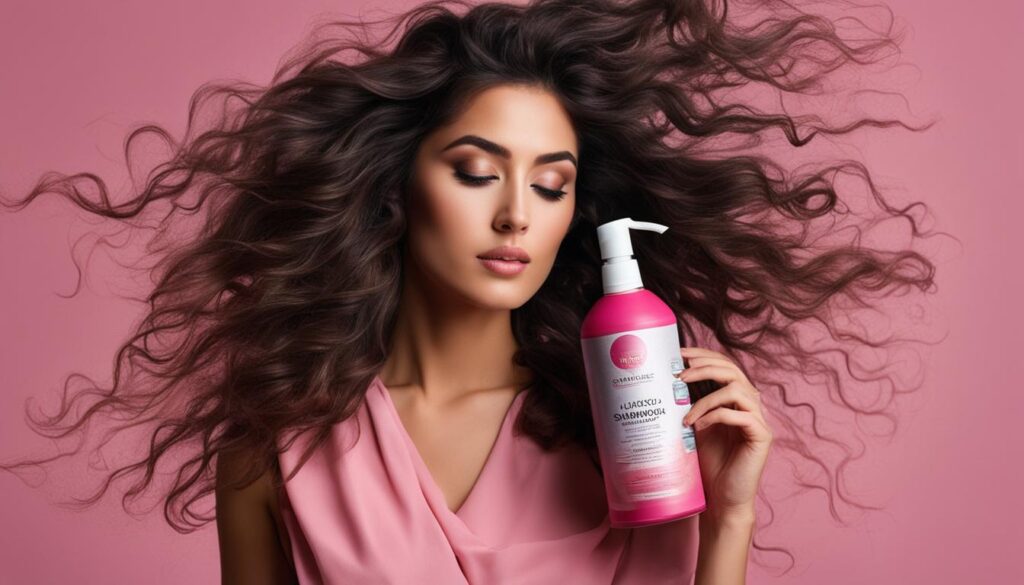
If you have an oily scalp, maintaining proper hair washing frequency is key to keeping your hair clean and preventing excessive greasiness. However, it is essential to strike a balance, as excessive washing can strip your scalp of its natural oils, leading to increased oil production.
An effective solution to manage excess oil between washes is to use dry shampoo. Dry shampoo is a hair product that absorbs oil and refreshes your scalp, making it an excellent tool for maintaining scalp hygiene and managing oily hair.
Dry shampoo is available in various forms, including sprays, powders, and mousse. It offers a quick and convenient way to absorb excess oil without the need for water and extensive washing. To use dry shampoo, simply apply it to your roots, massage it in, and brush out any residue.
This handy hair care product can be especially beneficial on busy days or when you don’t have time for a full hair wash. It helps to refresh and revitalize your hair, giving it a clean and voluminous appearance.
However, keep in mind that dry shampoo is not a substitute for regular hair washing. It should be used as a temporary solution between washes to manage oiliness. To maintain optimal scalp health, it’s important to incorporate regular washing with a gentle shampoo and conditioner into your hair care routine.
Hair Washing Frequency Recommendations by Experts

Dermatologists and hair care experts provide valuable insights and recommendations on how often you should wash your hair. While there isn’t a one-size-fits-all answer, their expert advice can help guide you towards finding the optimal washing frequency for your hair and scalp.
Generally, experts suggest washing your hair once or twice per week. This frequency allows your scalp’s natural oils to nourish and protect your hair, promoting overall hair health.
However, it’s important to consider certain factors that can influence the need for more or less frequent hair washing. Chemical treatments, such as bleaching or perming, may require less frequent washing to prevent damage to the hair shaft and maintain color longevity. On the other hand, pubescent individuals going through hormonal changes may find it necessary to wash their hair more frequently due to increased oil production.
Expert Quote: “The ideal hair washing frequency varies among individuals, but generally, once or twice a week is recommended for most people.” – Dr. Samantha Taylor, Dermatologist
By following expert recommendations, you can strike a balance between maintaining clean and healthy hair while avoiding over-washing that can strip away essential oils and cause dryness.
Maintaining Hair Cleanliness Between Washes
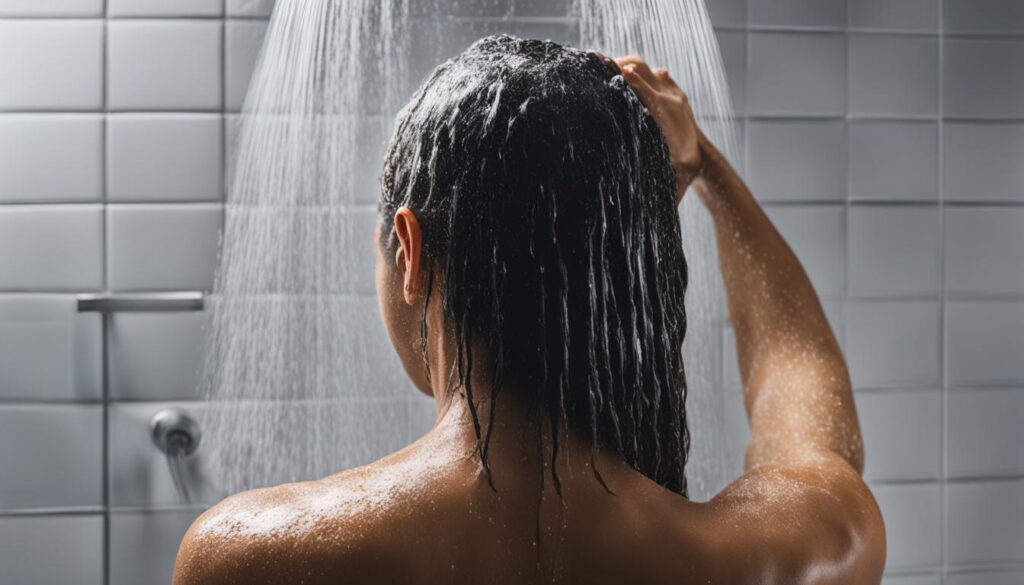
Maintaining scalp hygiene is crucial for keeping your hair clean and healthy between washes. There are several simple practices you can incorporate into your hair care routine to achieve scalp cleanliness and optimal hair health.
Combing Hair
Regularly combing your hair is an effective way to remove dead skin cells, dirt, and debris from your scalp. It also helps distribute natural scalp oils, keeping your hair moisturized and preventing it from becoming greasy.
Using a wide-toothed comb or a brush with natural bristles, gently comb your hair from root to tip. This process helps stimulate blood circulation in the scalp, promoting hair growth and maintaining a healthy scalp environment.
Leave-In Conditioner
Leave-in conditioners are a great way to nourish and moisturize your hair and scalp, especially between washes. They provide essential nutrients and hydration, reducing dryness and frizz and helping to maintain a balanced moisture level in your hair.
After combing your hair, apply a small amount of leave-in conditioner to your fingertips and massage it into your scalp and hair. Focus on the ends of your hair, as they tend to be drier. Leave-in conditioners also help detangle your hair and make it more manageable.
Scalp Oils
Using scalp oils can provide additional nourishment and hydration to your scalp. There are various scalp oils available, such as coconut oil, argan oil, and jojoba oil, each offering unique benefits for scalp health.
Apply a few drops of your preferred scalp oil to your fingertips and gently massage it into your scalp. This helps stimulate the hair follicles, promotes circulation, and replenishes moisture. Leave the oil on your scalp for a few hours or overnight before washing it out or styling your hair as usual.
Regular scalp care, including combing your hair, using leave-in conditioner, and applying scalp oils, can help maintain scalp hygiene and keep your hair clean and healthy between washes. Incorporate these practices into your hair care routine to promote overall hair wellness and achieve optimal results.
Tips for Washing Hair After Exercising or Swimming

After a rigorous workout or a refreshing swim, it’s important to take proper care of your hair to maintain its health and vitality. Here are some useful tips to follow:
1. Rinsing with Water
If you’ve worked up a sweat from exercising, you don’t necessarily need to shampoo your hair every time. Simply rinsing with water can be sufficient in removing sweat and dirt. However, if there is an overgrowth of bacteria or your hair and scalp start to smell, it’s advisable to use a gentle shampoo to cleanse the scalp.
2. Protecting Hair from Chlorine
When swimming in chlorinated pools, the chlorine can strip away the natural oils from your hair, leaving it dry and brittle. To protect your hair:
- Wet your hair thoroughly with clean water before entering the pool. This helps to reduce the absorption of chlorinated water into the hair.
- Apply a small amount of conditioner from mid-length to ends. This creates a barrier that helps to prevent chlorine from penetrating the hair shaft.
- After swimming, use a clarifying shampoo to remove any remaining chlorine and impurities from your hair and scalp.
- Follow up with a deep conditioner to replenish moisture and restore the hair’s natural shine.
3. Choosing the Right Shampoo and Conditioner
After exercising or swimming, it’s essential to use a shampoo and conditioner specifically formulated for your hair type and concerns. Look for products that offer hydration and protection against the drying effects of sweat and chlorine. Moisturizing shampoos and conditioners with nourishing ingredients like argan oil or shea butter can help restore moisture and strengthen the hair.
| Product Type | Benefits |
|---|---|
| Clarifying Shampoo | Removes chlorine, sweat, and impurities from the hair and scalp. |
| Moisturizing Conditioner | Restores moisture, softness, and shine to the hair after exposure to sweat or chlorine. |
| Deep Conditioning Treatment | Provides intensive hydration and repair to dry, damaged hair. |
4. Protecting Hair from UV Damage
If exercising outdoors, it’s essential to protect your hair from harmful UV rays. Wearing a hat or applying a leave-in conditioner with UV protection can help shield your hair from sun damage and color fading.
By following these tips, you can ensure that your hair remains healthy, vibrant, and protected even after intense physical activity or a swim.
Note: Always consult with a professional stylist or dermatologist for personalized advice based on your hair type, condition, and specific needs.
Hair Washing Frequency for Different Hair Textures
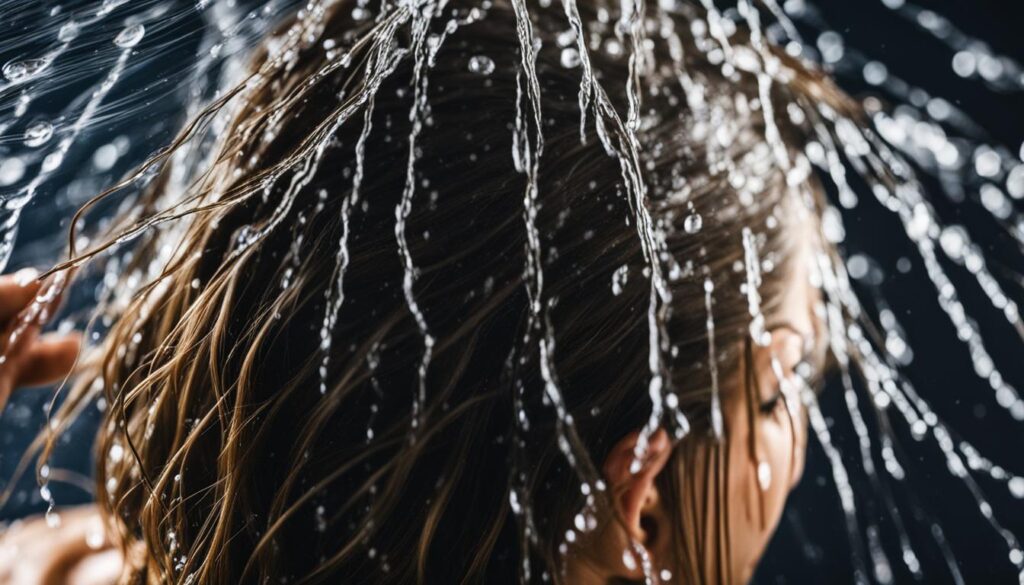
When it comes to hair washing frequency, one size does not fit all. It varies based on factors such as hair type, scalp health, and personal preferences. Understanding the needs of your hair texture is essential for maintaining healthy locks. Let’s explore how often you should wash your hair based on different hair textures and the best practices to follow.
Thick and Dry Hair
If you have thick and dry hair, consider yourself lucky! This hair type typically doesn’t get oily quickly and can go longer between washes. Washing your hair once or twice a week is often sufficient to keep it clean and healthy. Over-washing can strip away the natural oils that hydrate and protect your hair, leaving it dry and brittle.
Textured or Curly Hair
Textured or curly hair tends to be drier than other hair types. The natural oils produced by the scalp have a harder time traveling down the hair shaft, leading to dryness and frizz. As a result, frequent washing can further strip away these precious oils, leaving your hair even drier. Instead, aim to wash your textured or curly hair every 1-2 weeks to preserve its natural oils and texture.
Protective Styles
Protective styles, such as braids, twists, or weaves, require special care when it comes to washing. These styles are often meant to be worn for an extended period, and washing too frequently can cause frizz and damage. It’s recommended to wash your hair every other week while wearing a protective style. To maintain cleanliness without disturbing the style, you can use co-washing methods.
Co-washing involves using a gentle conditioner instead of shampoo to cleanse the hair. This method helps preserve moisture and enhance the health and longevity of protective styles.
Additionally, make sure to keep your scalp and hair moisturized by using a lightweight oil or moisturizing spray on a regular basis. This will help prevent dryness and breakage while keeping your protective style looking fresh.
Recommended Hair Washing Frequency for Different Hair Textures
| Hair Type | Recommended Washing Frequency |
|---|---|
| Thick and Dry Hair | Once or twice a week |
| Textured or Curly Hair | Every 1-2 weeks |
| Protective Styles | Every other week, using co-washing methods |
Now that you know the recommended hair washing frequency for different hair textures, you can tailor your hair care routine accordingly. Remember to listen to your hair’s needs and adjust as necessary. Taking proper care of your hair will help you maintain its health, shine, and natural beauty.
Conclusion
In conclusion, determining the ideal hair washing frequency is a personal journey that varies from person to person. There isn’t a one-size-fits-all answer as it depends on factors such as hair type, scalp oiliness, and personal preferences. It’s essential to find a routine that works for you.
Take into consideration your hair type. Thick and curly hair generally doesn’t need to be washed as frequently as other hair types, while thin and oily hair may require more frequent washing. If you have dry hair, it’s beneficial to avoid washing too often to prevent further drying.
Scalp oiliness is another significant factor. If you have an oily scalp, you might need to wash your hair more often to prevent greasiness. However, excessive washing can strip the scalp of its natural oils, leading to increased oil production. In between washes, maintaining scalp hygiene by combing your hair and using leave-in conditioner or scalp oils can help keep your hair clean and healthy.
Remember to consult a dermatologist if you experience any scalp or hair issues. They can provide expert advice and guidance tailored to your specific needs. By finding the right routine and taking care of your hair and scalp between washes, you can achieve and maintain clean, healthy hair.
Also Refer : Eminence Skin Care: Luxury Natural Beauty Finds
FAQs
Q: How often should I wash my hair?
A: The frequency of washing your hair depends on your hair type and lifestyle. Generally, washing your hair every 2-3 days is recommended, but it may vary for different individuals.
Q: Is it okay to wash your hair every day?
A: Washing your hair every day can strip it of its natural oils, leading to dryness and potential damage. It’s best to wash your hair every 2-3 days to maintain a healthy balance often should you wash hair loss less often.
Q: How does using a clarifying shampoo impact how often I should wash my hair?
A: Clarifying shampoo can effectively remove product buildup and impurities from the hair and scalp. Depending on your usage and need, it may affect how often you need to wash your hair.
Q: What are the potential consequences of not washing your hair often enough?
A: If you don’t wash your hair regularly, oils, product buildup, and environmental impurities can accumulate, leading to an itchy scalp, dandruff, and potential odor.
Q: Can washing my hair too often lead to damage or other issues?
A: Over-washing your hair can strip it of natural oils, leading to dryness, brittleness, and potential scalp issues. It’s essential to find a balance in how often you wash your hair.
Q: How does the frequency of washing your hair relate to dandruff?
A: Dandruff can be influenced by the frequency of hair washing. Both over-washing and infrequent washing can contribute to dandruff issues, so finding the right balance is crucial.
Q: Are there specific factors that determine how often I should wash my hair?
A: Yes, factors such as hair type, scalp conditions, lifestyle, and exposure to environmental elements play a role in determining how often you should wash your hair.
Q: What is the impact of not washing your hair on color-treated hair?
A: Not washing your hair often enough can help preserve color-treated hair, as frequent washing can cause color to fade more quickly. However, it’s important to maintain scalp and hair health while doing so.
Q: Can different hair types require varying frequencies of washing?
A: Absolutely. Hair types such as oily, dry, curly, or straight hair may require different washing frequencies to maintain optimal health and appearance.
Q: How can I determine the best frequency for washing my hair?
A: Experimenting with different washing schedules and monitoring the condition of your scalp and hair can help you find the ideal frequency for washing your hair. Consulting with a hairstylist can also provide valuable insights.




